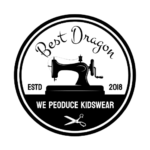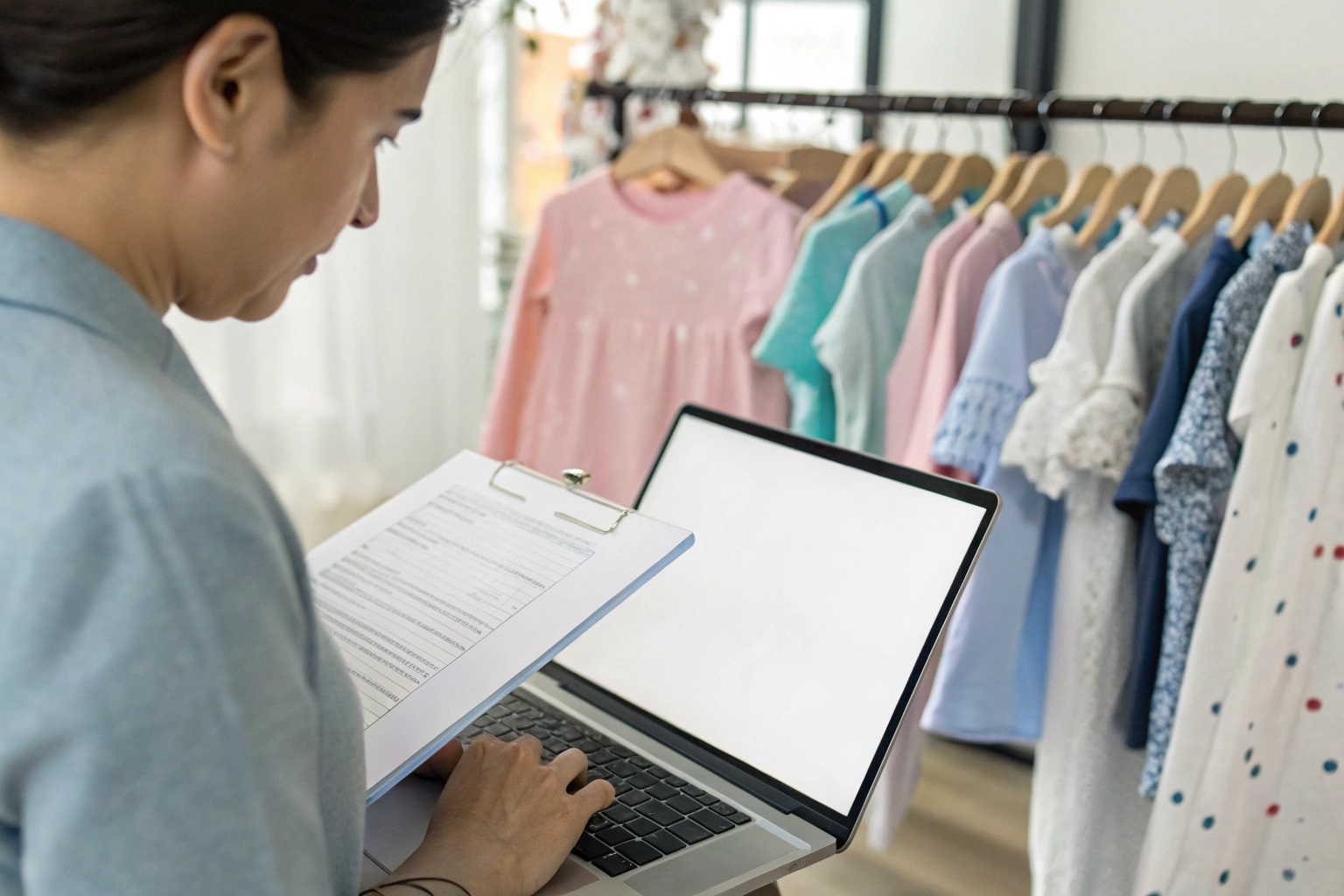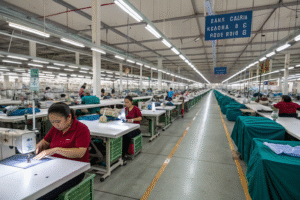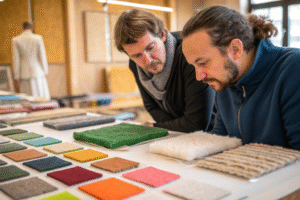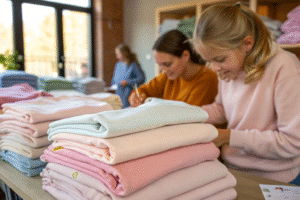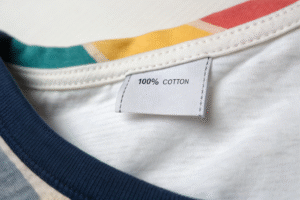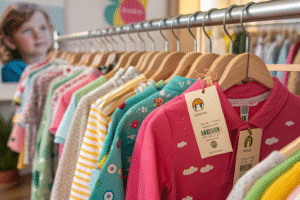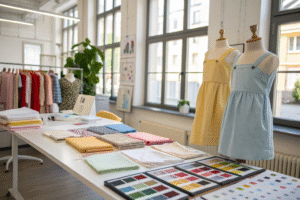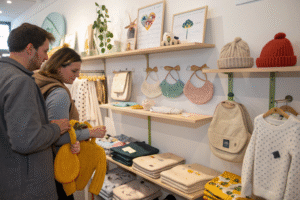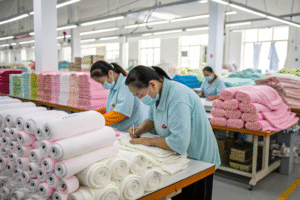Finding the right baby clothes supplier can be challenging. Quality, safety, and pricing all matter when choosing a manufacturer.
Yes, many reliable baby clothing suppliers offer wholesale and custom options. The key is finding a manufacturer that meets safety standards, has flexible MOQs, and provides consistent quality.
This guide will help you navigate the babywear industry, from starting a business to selecting the best suppliers and wholesale trends for 2025.
How to start a business with baby wear?
Starting a baby clothing brand sounds exciting, but where do you begin?
To start a baby wear business, choose a niche, find a trusted supplier, ensure safety compliance, and build a strong brand identity. New brands must focus on quality, soft fabrics, and safe production standards.

What are the key steps to launching a babywear brand?
Starting a baby clothing line involves more than just choosing cute designs. Here’s a step-by-step breakdown:
- Select a Niche – Organic babywear, themed collections, or budget-friendly options?
- Source Reliable Suppliers – Choose manufacturers with experience in baby clothing.
- Test Samples for Quality – Ensure fabrics are soft, durable, and safe for infants.
- Understand Compliance & Safety – Babywear must meet strict regulations in different markets.
- Build an E-commerce or Retail Strategy – Choose between online, marketplaces, or physical stores.
| Business Model | Best For | Challenges |
|---|---|---|
| Private Label | New brands | Higher MOQ |
| Custom Design | Unique products | Longer production time |
| Dropshipping | Low investment | Limited control over quality |
| Wholesale | Large retailers | Bulk orders required |
I recommend starting small with customized private label options before expanding into full-scale production.
How do you differentiate your babywear brand?
Since the babywear market is competitive, your brand should have a unique selling point. Some ideas include:
- Organic & sustainable materials – Parents prefer eco-friendly baby clothes.
- Gender-neutral designs – A growing trend among modern families.
- Smart fabric technology – Temperature-regulating fabrics for comfort.
At Fumao, we help babywear brands with sourcing, fabric testing, and low MOQ custom production to get started with minimal risk.
How to Find Reliable Baby Clothing Manufacturers?
Finding a babywear manufacturer that meets quality and compliance standards can be tough. Where should you look?
The best baby clothing manufacturers are found through trade shows, online sourcing platforms, direct factory partnerships, and referrals. Key factors to consider are certifications, experience, and flexible MOQs.
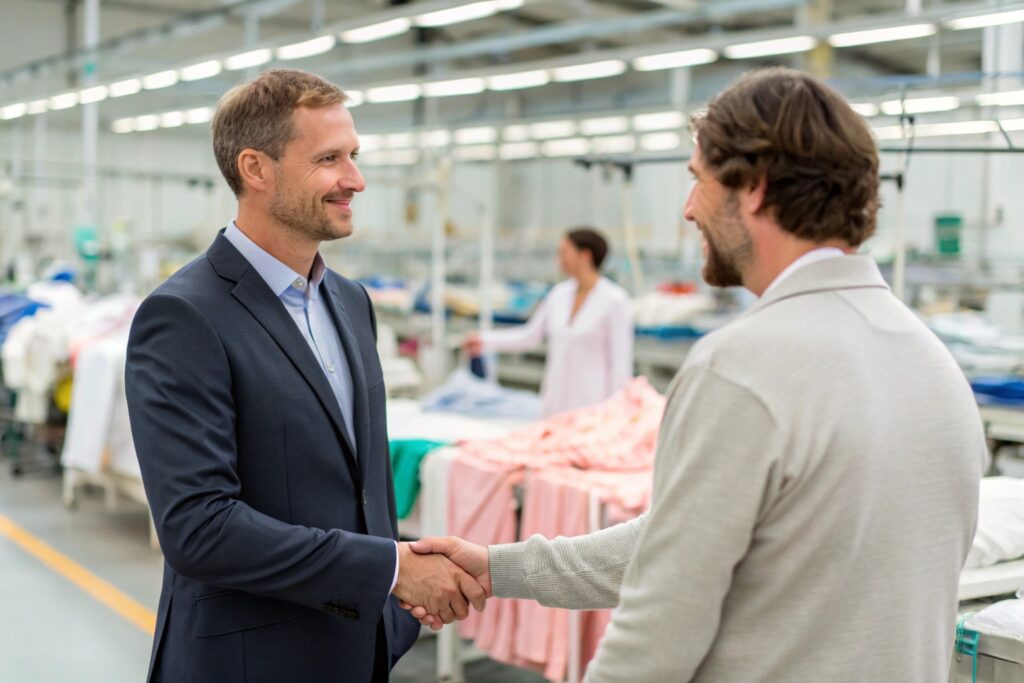
What are the best ways to source baby clothing suppliers?
- Trade Shows & Exhibitions – Events like CBME (Children Baby Maternity Expo) showcase top manufacturers.
- Online Sourcing Platforms – Alibaba, Global Sources, and direct factory websites.
- Industry Referrals & Networking – Recommendations from existing babywear brands.
- Direct Factory Visits – Ensure quality control and check compliance firsthand.
| Sourcing Method | Best For | Downsides |
|---|---|---|
| Trade Shows | Meeting verified suppliers | Requires travel |
| Online Platforms | Wide selection | Need to verify supplier legitimacy |
| Direct Factories | Full control over production | Higher MOQ |
| Agents | Finding small factories | Added costs |
What makes a manufacturer reliable?
A good baby clothing manufacturer should have:
- Experience in babywear production
- Certifications for fabric safety (OEKO-TEX, GOTS)
- Strong quality control processes
- Flexible order minimums
- Ability to customize designs and labels
I’ve worked with brands that struggled with inconsistent sizing and poor stitching. That’s why I always advise ordering samples before committing to a large order.
What to Ask Baby Apparel Suppliers Before Ordering?
Not all baby clothing manufacturers are the same. How do you evaluate them before placing an order?
Before working with a babywear supplier, ask about fabric sourcing, compliance with safety standards, minimum order quantities (MOQs), lead times, and payment terms. These factors affect product quality and business scalability.
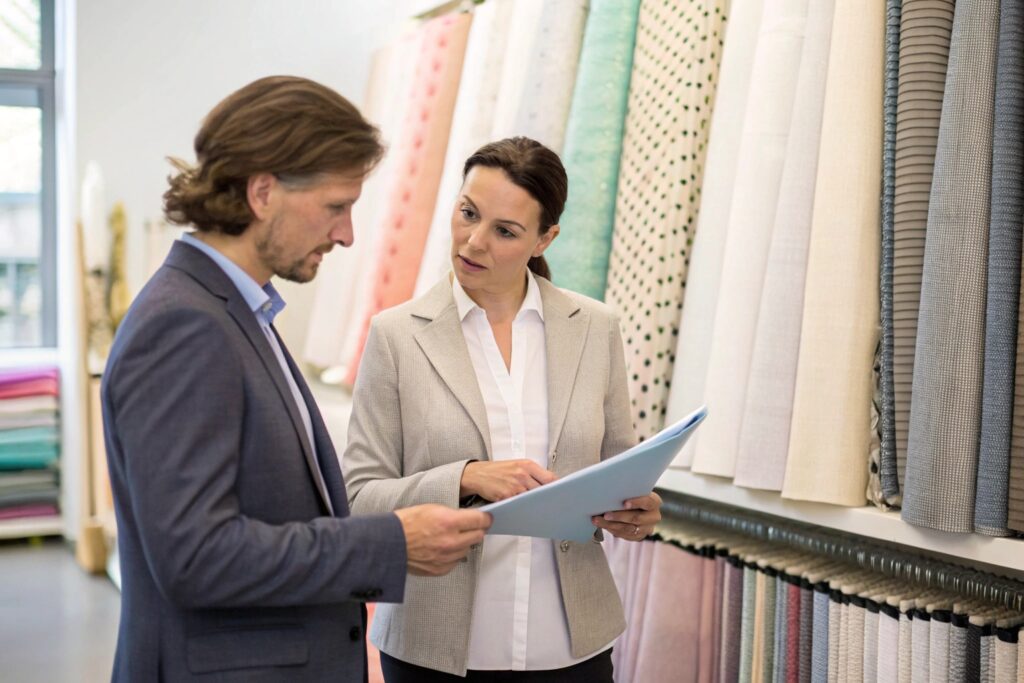
What are the key questions to ask a babywear supplier?
Here are the top questions I ask when vetting a new baby clothing manufacturer:
- What certifications do you have? – Look for OEKO-TEX, GOTS, or CPSIA compliance.
- What are your MOQ requirements? – Some suppliers require 500+ pieces per design.
- Do you provide sample orders? – Testing a sample ensures fabric quality.
- What are your lead times? – Standard production time is 30-60 days.
- Can you do private labeling and packaging? – Branding is essential for babywear.
| Question | Why It Matters |
|---|---|
| Are your fabrics baby-safe? | Ensures no harmful chemicals |
| What is the shrinkage rate? | Important for cotton babywear |
| Do you offer organic options? | Growing demand for eco-friendly babywear |
| Can you match Pantone colors? | Custom branding requires precise color matching |
How can you avoid supplier issues?
I’ve seen brands lose money due to late deliveries or poor quality. Here’s how to minimize risks:
- Start with a small batch – Test a supplier before placing bulk orders.
- Request a detailed production timeline – Delays can hurt seasonal sales.
- Use a third-party quality check – A small investment in inspections prevents big losses.
Best Baby Clothes for Wholesale in 2025?
Trends in babywear change quickly. What are the best wholesale options for 2025?
The top wholesale babywear trends for 2025 include organic cotton basics, gender-neutral styles, and multifunctional outfits. Sustainable and minimalist designs are growing in demand.
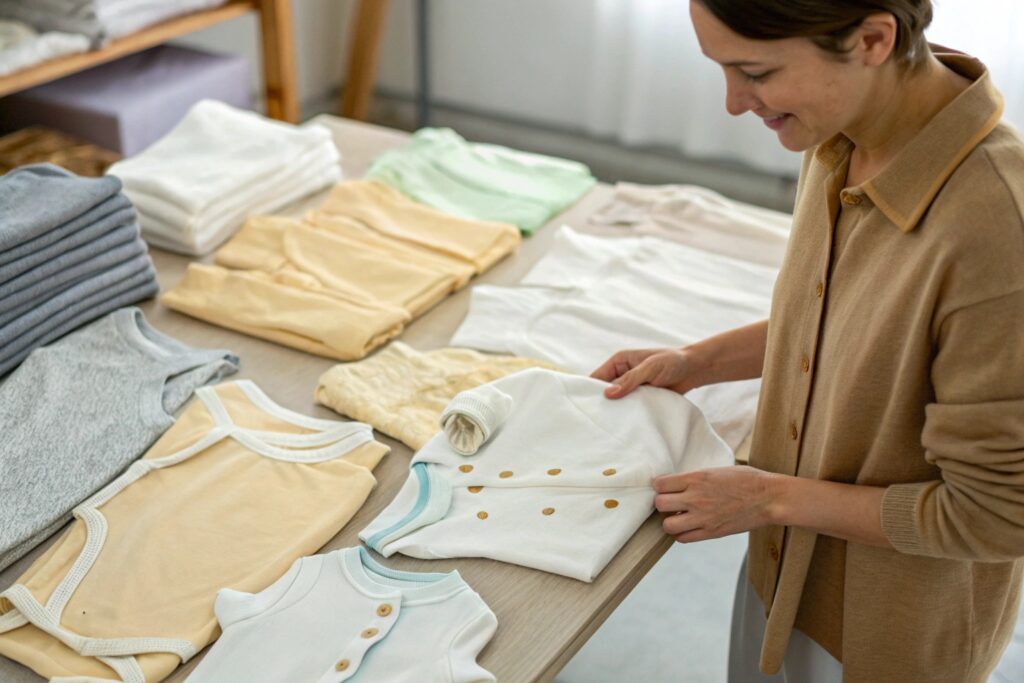
What are the best-selling babywear products for 2025?
Based on my market research and client orders, here are the top babywear categories:
| Babywear Type | Why It’s Popular |
|---|---|
| Organic Cotton Bodysuits | Eco-friendly and breathable |
| Gender-Neutral Baby Sets | More parents prefer unisex clothing |
| Convertible Sleepwear | Saves parents time and money |
| Personalized Baby Outfits | Custom embroidery or prints are trending |
| Knitwear & Soft Wool Layers | Sustainable and warm for winter |
Why is organic babywear growing in popularity?
Parents are becoming more conscious about fabric safety. Organic cotton baby clothes are:
- Free from harmful chemicals
- Hypoallergenic and soft on skin
- Environmentally friendly
That’s why many of my clients are shifting from synthetic fabrics to natural materials.
How to choose the best wholesale babywear?
When sourcing wholesale, consider:
- Fabric quality – Look for OEKO-TEX certified suppliers.
- Sizing consistency – Standardized fits reduce return rates.
- Customization options – Branding boosts retail appeal.
- Seasonal demand – Plan orders ahead to match peak buying times.
In 2025, minimalist, comfortable, and sustainable babywear will dominate the wholesale market.
Conclusion
Finding the right baby clothing supplier is crucial for any brand. Whether you’re starting a new babywear business or expanding your wholesale line, choosing a trusted manufacturer ensures quality, safety, and smooth production. With trends shifting towards sustainable and functional designs, brands that prioritize high-quality materials and unique styles will succeed.
